Sports Physiology
Physiology is the biological science focussed on how organisms, organ systems, individual organs, cells, and biomolecules carry out their functions in a living system (e.g. the human body).
In the case of exercise, physiology looks at the acute responses and chronic adaptations to a wide-range of physical exercise conditions. A sports physiologist studies these responses in athletes, in response to training and competition, to enhance and refine overall fitness and athletic performance.

What does a sports physiologist do?
A sports physiologist performs a broad range of tasks which contribute to the performance of an individual or team of athletes.
Broadly speaking, a sports physiologist is responsible for performing the following scientific functions:
- Identify and quantify an athlete’s physical and physiological characteristics in a laboratory or field setting.
- Establish the physiological and performance demands of competition.
- Interpret routine fitness tests.
- Determine and implement effective interventions (e.g., training, dietary, recovery, environmental, technological) to improve sports performance.
- Training program design and planning.
- Modelling and monitoring training sessions or performance to accurately quantify physical load/stress placed on athletes.
- Maintain, evaluate, and develop sport technology and scientific equipment.
- Educate and provide relevant advice to athletes, coaches, peers, and students.
- Travel with athletes and teams to training camps or competitions.
- Conduct applied research projects to enhance sports performance.
- Presentation and reporting of testing and research outcomes.
On a daily basis, these activities might require specific knowledge and skills to perform the following activities including, but not limited to:
- Using ergometers, stopwatches, blood gas analysers, spirometers, ultrasound devices, heart-rate monitors.
- Performing venepuncture, carbon monoxide rebreathing, submaximal and progressive maximal tests, skeletal muscle biopsies, anthropometry, equipment calibration and validation.
- Sampling expired gasses, blood, sweat, saliva, skeletal muscle, faeces.
- Measuring heart rate, haemoglobin mass, body temperature, subjective ratings of effort, blood gasses and metabolites, running speed, jump height, skinfold thickness, power output, urine specific gravity, immune function.
- Determining maximal oxygen uptake, lactate threshold, body composition, running economy.
What does a sports physiologist do?
A sports physiologist performs a broad range of tasks which contribute to the performance of an individual or team of athletes.

Physiology research and practice
Due to the diverse nature of the discipline of sports physiology there are a number of sub-disciplines, including:
- Altitude training
- Exercise in the heat (thermoregulation)
- Biochemistry and haematology
- Immunology
- Performance recovery
- Tapering
- Talent Identification
- Anthropometry
- Smart sensors and devices
Physiology is a service offered across the Australian high performance sport training-centre network:
- Australian Institute of Sport (AIS)
- ACT Academy of Sport (ACTAS), referred to as Performance Science
- New South Wales Institute of Sport (NSWIS)
- Northern Territory Institute of Sport (NTIS)
- Queensland Academy of Sport (QAS), referred to as Sports Science
- South Australian Sports Institute (SASI)
- Tasmanian Institute of Sport (TIS), referred to as Sports Performance
- Victorian Institute of Sport (VIS), referred to as Performance Science
- Western Australian Institute of Sport (WAIS), referred to as Sport Science
Physiology research and practice
Due to the diverse nature of the discipline of sports physiology there are a number of sub-disciplines
Resources
Groups, societies and professional bodies
Sports physiology covers a range of disciplines and therefore a number of societies may be applicable:
- Exercise and Sport Science Australia (ESSA) is a professional organisation committed to establishing, promoting, and defending the career paths of tertiary trained exercise and sports science practitioners. Sport scientist accreditation is available from ESSA to those professionals working in the elite sports science industry. ESSA requires Accredited Sports Scientists (ASpS) and Accredited High Performance Managers (AHPM) to maintain their accreditation through continuing professional development.
- Sports Medicine Australia (SMA) is a national multidisciplinary organisation committed to enhancing the health of all Australians through safe participation in sport and physical activity.
- European College of Sport Science (ECSS) is an international non-profit organisation with the purpose of promoting science and research, with special attention to the interdisciplinary fields of sport science and sports medicine.
- American College of Sports Medicine (ACSM) is an association of sports medicine, exercise science, and health and fitness professionals dedicated to helping people worldwide live longer, healthier lives.
- British Association of Sport and Exercise Sciences (BASES) is the professional body for sport and exercise sciences in the United Kingdom. The vision of BASES is to lead excellence in sport and exercise science through evidence-based practice in Physiology, biomechanics, and psychology disciplines.
- International Council of Sport Science and Physical Education is the world’s largest network of organisations and institutions concerned with sport, sport science and physical education, accounting for millions of people. The organisation operates with the intention to 1) investigate for a better scientific understanding of all facets of human movement; 2) educate for a better quality of life and improved health for all people; and, 3) advocate for the benefits related to an active lifestyle and the ethical values inherent in sporting activity.
Vocational educational training
To become a sports physiologist a person must have completed university studies (an undergraduate degree followed by a postgraduate degree, such as honours, masters or PhD) in Exercise Science, Human Movement, Sport Science, Physical Education or a related field. Numerous Australian universities offer courses in the field of physiology, exercise science or sport science. ESSA estimates that 3,000 exercise and sports science students graduate each year.
Sports physiologists can practice in a variety of settings and may work as permanent employees, consultants, be self-employed, occupational trainees, or volunteers. In Australia, the majority of sports physiologists are associated with National Institute Network (NIN) institutions, national sporting organisations (NSOs), and/or professional sporting teams.
Often, sports physiologists work in a collaborative manner with other specialists to provide coaching staff with relevant evidence-based support to foster athlete development and enhance athletic performance. Specialist practitioners who work along with sports physiologists may include nutritionists, biomechanists, performance analysts, psychologists, skill acquisition specialists, doctors, or physiotherapists. Collectively, the group is known as a team of ‘sport scientists’. In 2012, Exercise and Sports Science Australia (ESSA), estimated that there were 400 people working as professional sports scientists in Australia; however, only twenty sports scientists chose to be nationally accredited through ESSA’s program.
- Profiling the Australian High Performance and Sports Science Workforce, full report, Centre of Exercise and Sports Science (C-ESS), Deakin University, funded by ESSA, (December 2013).
- Being an elite sports scientist: a balancing act? Thompson KG, International Journal of Sports Physiology and Performance, Volume 5(1), pp.1-2, (2010).
In February 2013, the Australian Crime Commission (ACC) published a report on Organised Crime and Drugs in Sport, which revealed that, among other staff, ‘sports scientists’ had condoned and/or orchestrated the administration of prohibited and not-yet-approved substances to athletes. As such, the controversial practice by ‘pseudo-science’ practitioners thrust the practice of ‘sport science’ in Australia into the spotlight. A senate enquiry which followed into the Practice of Sport Science in Australia (July, 2013, Rural and Regional Affairs and Transport References Committee, Australian Government) revealed a lack of consensus on the precise definition of what constitutes a ‘sports scientist’. This prompted ESSA, the only nationally recognised organisation for exercise and sport science, to call upon the federal government and major sporting codes to agree to a national regulatory body to oversee accreditations to avoid future issues surrounding banned substances.
The Profiling the Australian High Performance and Sports Science Workforce report gives valuable insight about the scope of the profession. Of the 400 personnel estimated to be working in the sector, 210 completed the survey. As such, the report was able to generalise the findings about the characteristics and issues of personnel working in the Australian high performance and sport science workforce. Key recommendations listed in the report included: 1) the agreement of a definition of a sport scientist and their scope of practice, with a draft definition proposed, 2) the establishment of a national registration and accreditation scheme for the High Performance and Sport Science profession, commissioned by ESSA, 3) increase the rate of training in ethical practice in the profession, overseen by ESSA, 4) increasing opportunities for relevant professional development, facilitated or provided by ESSA, 5) improvement in organisational human resource practices, 6) future research to ensure appropriate industry decision making related to the profession.
- Sports scientists must be accredited: Nisbett. Schmook N, afl.com.au, 8 February 2013.
- Sports Science: time for proper accreditation. Thompson K, The Conversation, 13 February 2013.
- Sports back regulation of scientists. Pierik J, Baum G, The Age, 12 June 2013.
Professional Accreditation
In December 2017 the Australian Institute of Sport (AIS) announced the introduction of a national accreditation scheme for sport scientists. The scheme is run in partnership with Exercise & Sports Science Australia (ESSA) and the Australian Strength & Conditioning Association (ASCA).
In August 2020 the AIS released the Sports Science Sports Medicine Practitioner Minimum Standards. These standards represent the mandatory minimum standards for SSSM staff and contractors engaged to deliver services in these disciplines of practice by National Sporting Organisations (NSOs) that are subject to the AIS SSSM Best Practice Principles via their Sport Investment Agreement. They will also guide the minimum SSSM personnel requirements of the National Institute Network (NIN).
Exercise physiology accreditation is available from Exercise and Sport Science Australia (ESSA) to those professionals working in a clinical setting. ESSA requires accredited exercise physiologists (AEPs) to maintain their accreditation through continuing professional development.
Further resources and reading
Access to resources
Where possible, direct links to full-text and online resources are provided. However, where links are not available, you may be able to access documents directly by searching our licenced full-text databases (note: user access restrictions apply). Alternatively, you can ask your institutional, university, or local library for assistance—or purchase documents directly from the publisher. You may also find the information you’re seeking by searching Google Scholar.
- Physiological Tests for Elite Athletes (Second edition). Tanner R, Gore C, Human Kinetics, 2013.
- Ascta Physiologica Scandanavica
- American Journal of Physiology - Endocrinology and Metabolism
- American Journal of Sports Medicine
- British Journal of Sports Medicine
- European Journal of Applied Physiology
- Exercise and Immunology Review
- High Altitude Medicine and Biology
- International Journal of Sports Physiology and Performance
- Journal of Applied Physiology
- Journal of Physiology
- Journal of Science and Medicine in Sport
- Scandinavian Journal of Medicine & Science in Sports
- Sports Medicine
- Physiological Reviews
- Declaration of Helsinki: ethical principles for medical research involving human subjects, World Medical Association (WMA). Adopted by the 18th WMA General Assembly, Helsinki, Finland, June 1964, amended at the 64th WMA General Assembly, Fortaleza, Brazil, October 2013. The policy statement of ethical principles for medical research involving human subjects, including research on identifiable human material and data.
- Proceedings of the 2016 International Association of Computer Science in Sport (IACSS) Conference. The International Association of Computer Science in Sport Conference 2016 took place between July 31– August 3, 2016 in Brasilia, Brazil. The aim of the conference was to promote the inter-disciplinary field of sport science and computer science in order to face challenging problems in sports and exercise sciences, supported by formal models, analytical approaches and computational support.
- Profiling the Australian High Performance and Sports Science Workforce, Centre of Exercise and Sports Science (C-ESS), Deakin University, funded by ESSA, (December 2013). The research team of the present study set out to better understand the Australian High Performance and Sports Science workforce by examining: 1) the size and capacity of the high performance and sport science workforce; 2) what roles high performance managers and sport scientists perform; 3) their salary and conditions of employment; 4) their work environment; 5) their training and professional development; 6) their career pathways and future intensions; and 7) their opinions about their profession. We also wanted to know about the human resource management practices of sport organisations that employ members of the high performance and sport science workforce. Executive Summary
- The value of Accredited Exercise Physiologists to Consumers in Australia, Deloitte Access Economics Report for Exercise and Sports Science Australia (ESSA), (November 2016). This report estimates the value of accredited exercise physiologists from the perspective of consumers in Australia. Focus is on cost to benefit rations for Australian consumers with specific health conditions including: depression, type 2 diabetes, cardiovascular disease, asthma and chronic obstructive pulmonary disease. Infographic overview.
- National Institute Network Research. Recently published sport science/sports medicine research from National Institute Network (NIN) researchers. This list is updated on a monthly basis.
- Sleep and the athlete: narrative review and 2021 expert consensus recommendations Walsh, N et al, British Journal of Sports Medicine, Elite athletes are particularly susceptible to sleep inadequacies, characterised by habitual short sleep (<7 hours/night) and poor sleep quality (eg, sleep fragmentation). Athletic performance is reduced by a night or more without sleep, but the influence on performance of partial sleep restriction over 1–3 nights, a more real-world scenario, remains unclear.
Licencing restrictions apply to some resources.
All Clearinghouse members
'Australian' members only
'High Performance' members only
Restricted access
Various restrictions
- Applied Physiology Conference, Online presentations (19 October 2023)
- Women in Sport Congress, MCG, Melbourne (18-19 August 2022)
- Applied Physiology Conference, Gold Coast Sports & Leisure Centre (12-13 October 2022)
- Applied Physiology Conference, Online presentations (12-13 October 2021)
- Applied Physiology Conference, Online presentations (12-13 October 2020)
- Applied Physiology Conference, Albert Park, Victoria (29 October 2019)
- Applied Physiology Conference, Queensland Academy of Sport (21-23 November 2018)
- Latest Altitude Training Ideas for Team Sports, Dr Olivier Girard, Research Scientist (Altitude), Aspetar Orthopaedic and Sports Medicine Hospital, Smart Talk Seminar Series (7 December 2017)
- Sport Performance, Heat and the Brain, Professor Romain Meeusen, Head of Human Physiology Research Group, Vrije University, Brussels, Smart Talk Seminar Series (24 November 2017)
- Periodisation and Altitude Exposure – Current Best Practice with Practical Examples, Dr Philo Saunders, Senior Physiologist, AIS, Smart Talk Seminar Series (10 April 2017)
- P-values: Are you confused as everyone?, Dr Marijke Welvaert – AIS / UC Jointly Appointed Statistician, AIS Smart Talk Seminar Series , Australian Institute of Sport, Canberra (16 May 2016)
- Sweet science of boxing at AIS Combat Centre, YouTube, (9 May 2016). See how the AIS is conducting a scientific study to see how punching power is affected by fatigue. The video features the AIS Combat Centre and sport scientists Emily Dunn and Clare Humberstone.
- Monitoring Athlete Training Loads: what does that even mean? Feedback from the 2nd ASPIRE Sports Science Conference in Qatar, Dr Sally Clark – AIS Physiology, Ben Raysmith – AIS Physical Therapies and Mick Drew – AIS Physical Therapies, Avish Sharma - AIS PhD Scholar, Smart Talk Seminar Series, Australian Institute of Sport, Canberra (20 April 2016)
- Silent Contributors to Injury - Illness - Performance, SMA & AIS Symposium, Australian Institute of Sport, Canberra (18-19 March 2016)
- Improving the Physical Preparation of Female Sevens Players. Anthea Clarke, AIS, UC and ARU PhD Scholar, SmartTalk Seminar Series, Australian Institute of Sport, Canberra (8 February 2016)
- The two-hour marathon: Is it possible?, Dr Michael J Joyner, Mayo Clinic, Minnesota, United States of America, Smart Talk Seminar Series (1 December 2015)
- Threats to Internal Validity in Exercise Science: A Review of Overlooked Confounding Variables, Israel Halperin, PhD candidate, Edith Cowan University / AIS Combat Centre, Smart Talk Seminar Series, Australian Institute of Sport, Canberra (29 September 2015)
- Influence of Biological and Technical Variability on Physique Assessment Methods, Ava Kerr, Manager of Health, Sport and Exercise Science Facilities at the University of the Sunshine Coast, Smart Talk Seminar Series, Australian Institute of Sport, Canberra (17 August 2015)
- New developments in non-invasive cardiac output measurements in high performance athletes and cardiovascular medicine, Mr. Frank Bour, Developer, Managing Director & Co-founder, Manatec Biomedical, France, Smart Talk Seminar Series (21 July 2015)
- Prescription of Training Load in Relation to Loading and Unloading Phases of Training, Craig Purdam - Head of AIS Physical Therapies, Dr David Hughes – AIS Chief Medical Officer, Dr Dale Chapman – AIS Acting Head of Physiology, Smart Talk Seminar Series (25 June 2015)
- My greatest contribution, Dr David Martin, Senior Physiologist, Australian Institute of Sport, Smart Talk Seminar Series (18 May 2015)
- Sportscience. A peer-reviewed journal and website for sport research. This site contains a wealth of resources and information for researchers and students in the sport and exercise sciences, with an emphasis on physiology, athletic performance, statistics, valid and reliable research methods, interpretation of results, sport specific research application and much more.
- The Science of Sport. Tucker R & Dugas J. Features articles by two PhD Exercise Physiologists, who provide extensive analysis and topical sport science debate.
- Physiology. English Institute of Sport, United Kingdom
Reviewed by: Australasian Sport Information Network
Last updated: 01 January 2019
Content disclaimer: See Clearinghouse for Sport disclaimer




